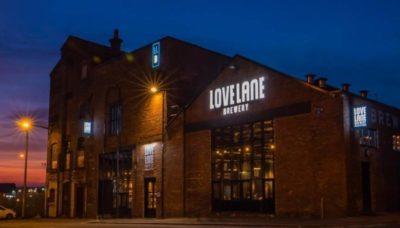Love Lane Brewing
When Liverpool’s historic Higsons brewing brand was revived in the city in 2017, there were cheers all round.
Higsons is now incorporated into the Love Lane Brewing brand and has found a new home in a converted factory in Liverpool’s uber-cool Baltic Triangle district. Derelict warehouses were transformed into an 18,000 hectolitre brewery capable of brewing 3.2 million pints, a gin distillery, bar and eatery.
Higsons was transporting this waste to a farm in Crosby to be used as animal feed, at a cost to the company’s finances and their carbon footprint. They wanted to explore a more sustainable process, so turned to Clean Growth UK’s North Hub, Liverpool John Moores University (LJMU).
Access to university expertise
LJMU researchers analysed the spent grain to see if it would be suitable for use as a fuel in biomass heating or electricity generation. They tested the levels of moisture, ash and volatile matter, the carbon content and calorific value – the ‘energy’ contained in a fuel. Researchers also investigated alternatives including combustion to generate energy, and anaerobic fermentation to produce biogas.
Other options explored were charcoal production, paper manufacture and use as a substitute for sawdust in brick-making.
LJMU also connected the Higsons team with the Bio Renewable Development Centre in York and local Coffee Roasters Crosby Coffee to apply for funding together and take the research further.
Impact
Paul Seiffert, Higsons Operations Director at Love Lane Brewing, said:
“We were hoping to find a more sustainable way to treat our waste and the support from LJMU at Clean Growth UK has enabled us to understand the detail behind our thinking. We know from initial tests that the business model does not exist for our brewery alone to use bio-mass but there might be a business case to develop a new service that can take the waste from local breweries around the Liverpool City Region or further afield.”
“This applied research has been vital for us because if we did not receive this support we would simply be guessing and we would not invest on that basis. It is interesting to see where this goes.”
